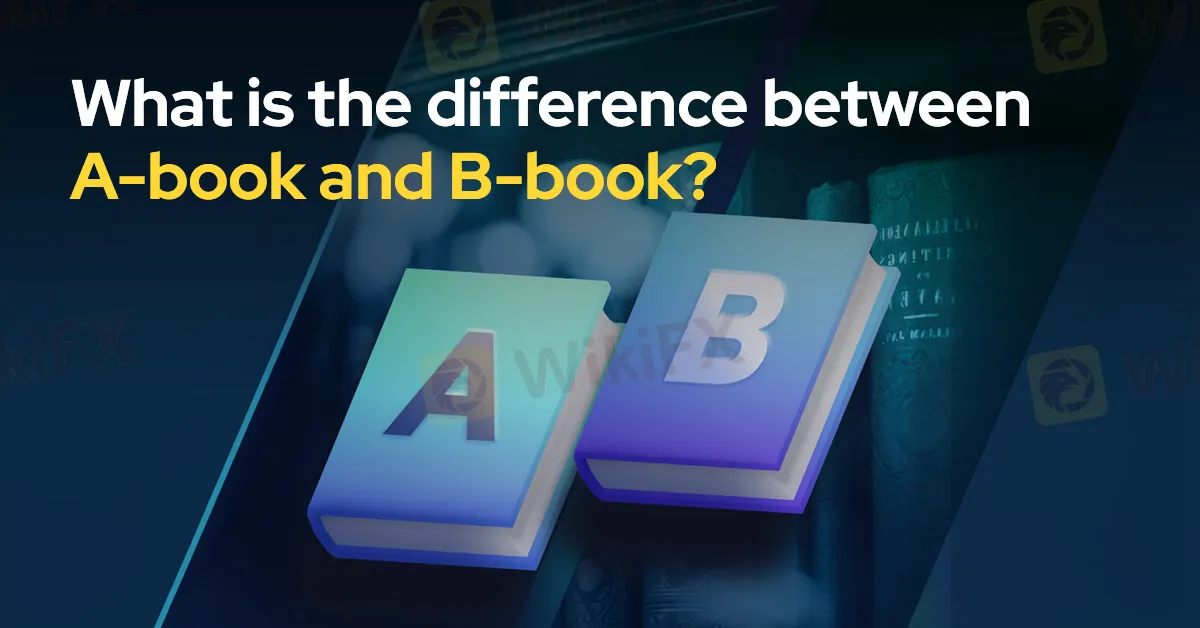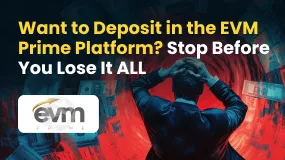简体中文
繁體中文
English
Pусский
日本語
ภาษาไทย
Tiếng Việt
Bahasa Indonesia
Español
हिन्दी
Filippiiniläinen
Français
Deutsch
Português
Türkçe
한국어
العربية
What is the difference between A-book and B-book?
Abstract:Brokers are often classified into two categories: A-book and B-book brokers. Understanding these distinctions can help traders choose the right broker for their trading needs. In this article, we’ll delve into what A-book and B-book brokers are, how they operate, and the key differences between them.

Brokers are often classified into two categories: A-book and B-book brokers. Understanding these distinctions can help traders choose the right broker for their trading needs. In this article, well delve into what A-book and B-book brokers are, how they operate, and the key differences between them.
What Are A-book and B-book Brokers?
To grasp the concept of A-book and B-book brokers, we need to understand the fundamental distinction between them. These terms refer to how brokers handle their clients' trades and manage risk. Importantly, there are no brokers exclusively classified as A-book or B-book; instead, brokers might use one or both models depending on the situation.
A-book Forex Brokers
A-book brokers, often referred to as STP (Straight Through Processing) brokers, are known for passing their clients orders to the interbank market or other external execution venues. They act as intermediaries, sourcing liquidity and facilitating trades between their clients and the broader financial markets.
Characteristics of A-book Brokers:
Direct Market Access: Clients' orders are routed directly to the interbank market, where they are executed at prevailing market prices.
Transparency: Pricing and execution are generally more transparent since orders are fulfilled in the open market.
No Conflict of Interest: Since A-book brokers pass orders to external venues, they do not take opposing positions to their clients trades.
B-book Forex Brokers
B-book brokers, also known as market makers, operate differently. They internalize their clients‘ trades, meaning that orders are fulfilled by the broker’s own dealing desk rather than being passed on to external markets.
Characteristics of B-book Brokers:
Internal Order Fulfillment: Trades are executed internally, often by taking the opposite side of clients trades.
Market Making: The broker sets the bid and ask prices and may benefit when clients lose money, as their losses can directly contribute to the brokers profits.
Client Segmentation: Typically, B-book brokers may place less profitable traders into the B-book system, while more profitable traders might be handled through the A-book system.
Key Differences
The primary difference between A-book and B-book forex brokers lies in their order fulfillment processes:
A-book Brokers: Orders are executed in the interbank market or other external venues. Clients benefit from direct market access with potentially better transparency and pricing.
B-book Brokers: Orders are fulfilled internally by the brokers dealing desk. This can create a conflict of interest, as the broker may profit from clients' losses.
Conclusion
Choosing between an A-book and a B-book broker depends on your trading preferences and goals. A-book brokers offer transparency and direct access to the interbank market, while B-book brokers may provide more favorable conditions for certain types of traders but could have inherent conflicts of interest. Understanding these models can help you make an informed decision and select a broker that aligns with your trading strategy.

Disclaimer:
The views in this article only represent the author's personal views, and do not constitute investment advice on this platform. This platform does not guarantee the accuracy, completeness and timeliness of the information in the article, and will not be liable for any loss caused by the use of or reliance on the information in the article.
Read more

Never Heard of Dynasty Trade? Here's Why You Should Be Worried
Have you heard this name before? No , it’s time you do because staying unaware could cost you. This platform is currently active in the forex trading and has been linked to several suspicious activities. Even if you’ve never dealt with it directly, there’s a chance it could reach out to you through ads, calls, messages, or social media. That’s why it’s important to know the red flags in advance.

Want to Deposit in the EVM Prime Platform? Stop Before You Lose It ALL
Contemplating forex investments in the EVM Prime platform? Think again! We empathize with those who have been bearing losses after losses with EVM Prime. We don't want you to be its next victim. Read this story that has investor complaints about EVM Prime.

WEEKLY SCAM BROKERS LIST IS OUT! Check it now
If you missed this week's fraud brokers list and are finding it difficult to track them one by one — don’t worry! We’ve brought together all the scam brokers you need to avoid, all in one place. Check this list now to stay alert and protect yourself from fraudulent brokers.

Catch the Latest Update on BotBro & Lavish Chaudhary
BotBro, an AI-based trading platform, became popular in India in 2024—but for negative reasons. Its founder, Lavish Chaudhary, who gained a huge following by promoting it heavily on social media. Since then, he has become well-known, but for many controversies. Let’s know the latest update about Botbro & Lavish Chaudhary.
WikiFX Broker
Latest News
Olymptrade Under Fire – Fraud Allegations and Investor Outrage
Hantec Markets Appoints New Executives for Growth in Dubai
Is the Forex Bonus a Genuine Perk or Just a Gimmick?
OctaFX Was Fined $37,000 for Operating Without a License
What Role do signals play in the forex trading?
5 Reasons Why Traders Are Losing Trust in Headway Broker
What WikiFX Found When It Looked Into Vestrado
Hantec Financial: A Closer Look at Its Licenses
eToro Joins Hands with Premiership Women’s Rugby
RM750 Million Lost to Investment Scams in Just Six Months
Currency Calculator


